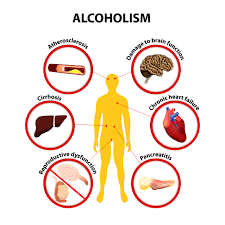Galactosemia is an inherited disorder in which there is inability to convert galactose to glucose in normal manner.
Incidence:
1 in 18,000 live births.
Enzyme defects:
• Galactose 1 phosphate uridyl transferase enzyme
• Galactokinase
• Epimerase
Metabolism of galactose:
Galactose is converted to galactose 1 phosphate in the presence of the enzyme galactokinase.
Galactose 1 phosphate is converted to UDP galactose in the presence of the enzyme Galactose 1 phosphate uridyl transferase.
UDP galactose is coverted to UDP glucose in the presence of the enzyme epimerase.
In this condition the enzymes are deficient so galactose accumulates and is excreted.
Inheritance:
Autosomal recessive
Clinical significance:
1. Hypoglycemia
2. Fatty infiltration leading to cirrhosis
3. Mental retardation
4. Cataract due to deposition of galactitol
Biochemical findings:
1. Increased blood galactose level
2. Blood glucose level decreases
3. Inorganic phosphate decreases
Urinary findings:
1. Increased excretion of galactose in urine
2. Aminoaciduria
Prognosis:
Not fatal can survive to puberty and childhood
Treatment:
Galactose should be restricted in the diet.





0 Comments